
Traveling as a digital nomad is liberating—you can pack your laptop, chase the sun, and work from anywhere. But for LGBTQ+ nomads, that freedom comes with a question mark: will I be safe there? Legal protections and cultural attitudes toward queer people vary dramatically from country to country, and even city to city. What feels like paradise for one traveler can feel like a risk for another.
It’s not just theory—real stories of harassment, unclear laws, or unchecked discrimination make LGBTQ+ travelers think twice before booking a ticket. Imagine planning a year abroad, only to wonder last-minute if your new home welcomes same-sex couples, or if walking hand-in-hand could attract the wrong kind of attention. Add the usual nomad worries—crime rates, visas, cost of living—and suddenly the excitement of relocation can feel heavy with uncertainty.
That’s why we turned to the data. Using insights from Nomads.com and Numbeo, combined with international rights reports, we identified the world’s 10 safest cities for LGBTQ+ digital nomads. These destinations earned top marks for inclusive laws, low crime, and nomad-friendly infrastructure (think reliable Wi-Fi, visa access, affordability, and vibrant communities). From Asia to Europe, here’s where queer nomads can thrive without fear.
Our analysis of Nomads.com and Numbeo data highlights five clear patterns:
Taipei earns the crown as the safest city worldwide for LGBTQ+ digital nomads. Taiwan made history in 2019 as the first Asian country to legalize same-sex marriage, a milestone that reflects its progressive, inclusive culture.
On the ground, Taipei backs this up with astonishing safety—Numbeo reports a crime index of just 19.86, lower than many major Western capitals. Add to that one of Asia’s largest Pride parades and a thriving queer community, and you get a city that feels both safe and celebratory.
Nomads.com rates Taipei “Great” for LGBTQ+ safety, noting the city’s friendly vibe and community presence. For nomads, the fundamentals are equally strong: internet speeds hover around 22 Mbps, the average monthly cost of living sits at $2,230, and visa options like Taiwan’s Gold Card or working holiday schemes make long stays practical.
Beyond logistics, Taipei offers the best of both worlds—street food and temples alongside futuristic hubs like Taipei 101 and open-minded nightlife in Ximending. Low crime, legal equality, and digital-nomad-ready infrastructure secure Taipei’s spot at #1.
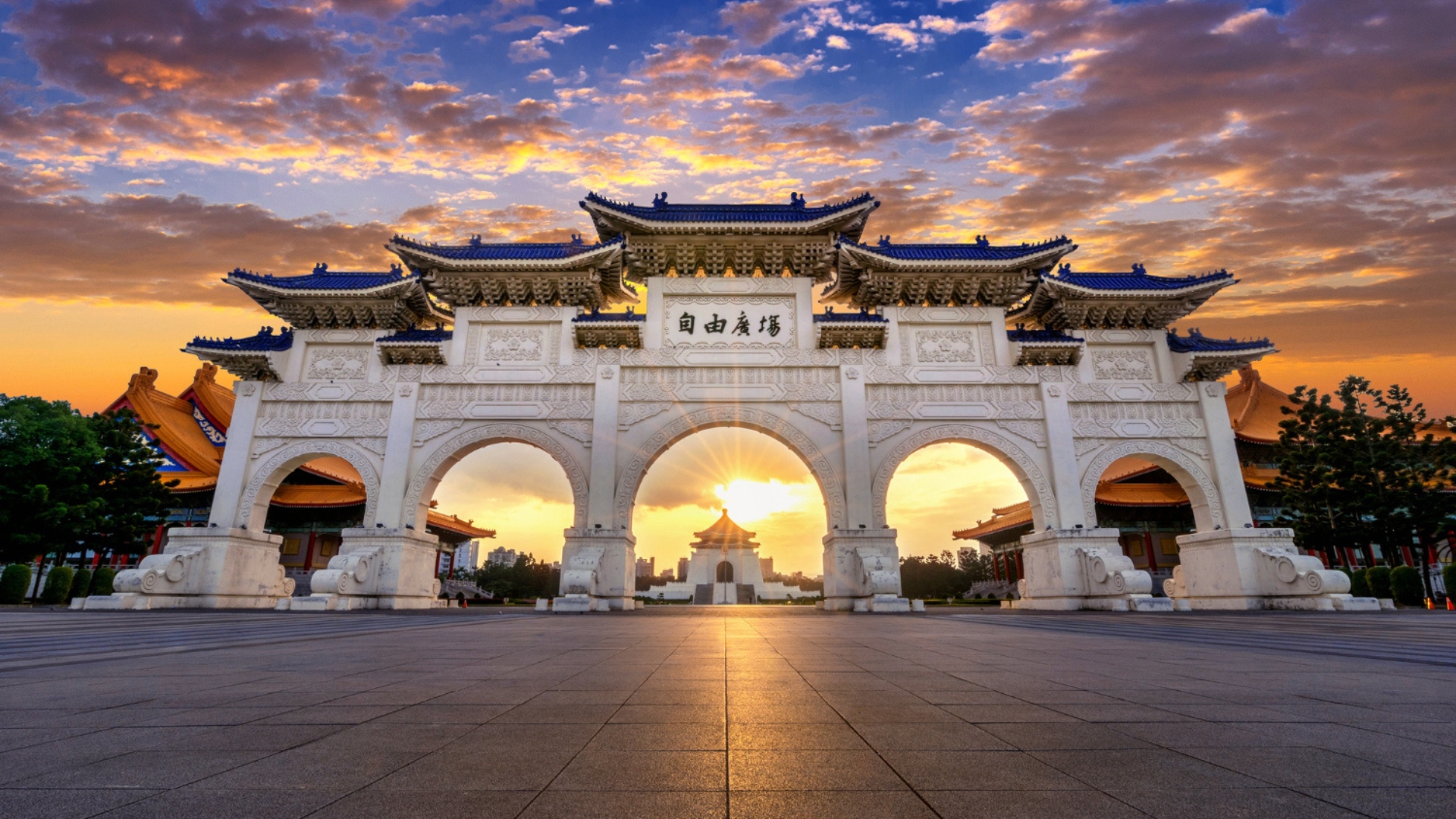
Valencia ranks as Europe’s standout safe haven for LGBTQ+ nomads. Spain has long been a global leader in LGBTQ+ rights—it legalized same-sex marriage in 2005 and enjoys broad social acceptance.
Valencia mirrors that progress locally, with Numbeo reporting a crime index of just 31.6 and Nomads.com rating it “Great” for both LGBTQ+ safety and low crime.
Strolling through the old town, the Turia gardens, or the vibrant Ruzafa district, travelers consistently note the city’s welcoming vibe.
From a nomad’s perspective, Valencia ticks every box.
Internet speeds average 31 Mbps, the cost of living runs about $3,684/month—cheaper than many Western capitals—and Spain’s new digital nomad visa makes relocation straightforward.
Factor in Mediterranean perks like endless beaches (Malvarrosa, El Saler), world-class food (yes, paella, but also a buzzing LGBTQ+ nightlife), and a strong expat/startup community, and Valencia offers more than just safety.
It combines lifestyle, affordability, and infrastructure, making it a clear #2 in our ranking.

Kaohsiung proves that Taiwan’s inclusivity extends far beyond its capital. Like Taipei, it benefits from national marriage equality and strong LGBTQ+ protections, but it adds a more relaxed, coastal pace of life.
Numbeo reports a crime index of just 20.6, confirming its reputation as one of the safest urban areas in Asia. Nomads.com echoes this, rating Kaohsiung “Great” for both women’s safety and LGBTQ+ friendliness.
Locals are famously welcoming, creating a communal, low-stress vibe that travelers quickly notice.
For nomads, Kaohsiung offers affordability and convenience. Monthly costs average just $1,716, internet speeds reach 28 Mbps, and the city is compact enough to explore by foot or bike.
Taiwan’s Gold Card program and working holiday visas make long-term stays realistic.
Add cultural highlights like the Pier-2 Art Center, night markets, and waterfront promenades, and Kaohsiung blends safety with creativity. Warm weather, low crime, and genuine openness secure Kaohsiung’s place in the global top three.
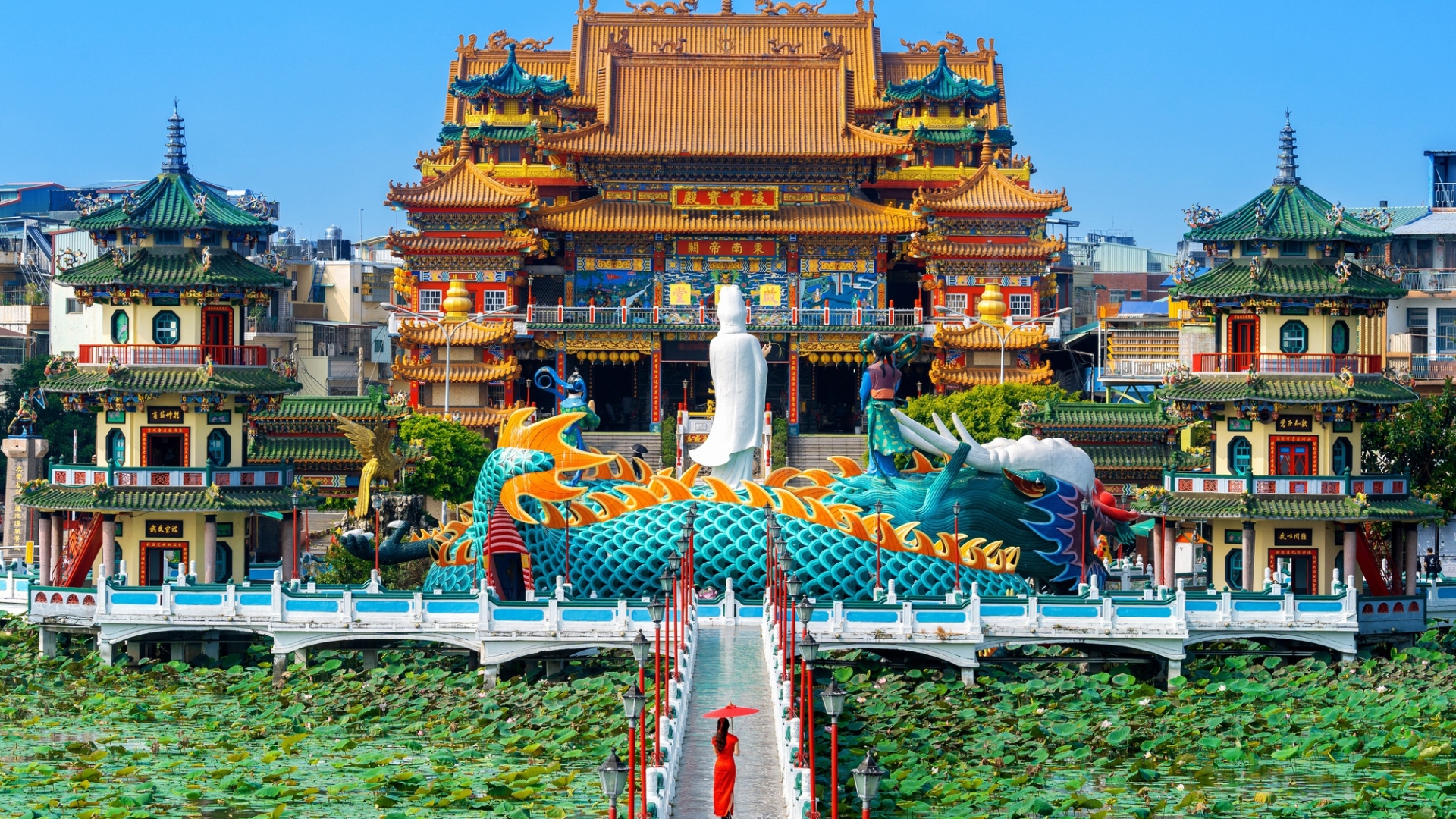
Coimbra may surprise some as a top-five entry, but this historic university town punches above its weight in both safety and inclusivity. Portugal legalized same-sex marriage in 2010 and granted adoption rights to same-sex couples in 2016, making it one of Europe’s most progressive nations. Locally, Coimbra shines with a crime index of just 18.3 (very low by global standards) and “Great” safety ratings across the board on Nomads.com.
The city’s digital-nomad appeal lies in its balance. Monthly costs run about $3,058, internet speeds average 24 Mbps, and the pace is far more relaxed than Lisbon or Porto. Thanks to Portugal’s D7 visa and its large student population, Coimbra blends international accessibility with youthful energy. English is widely spoken, Pride events dot the calendar, and cozy LGBTQ+-friendly bars create community. With medieval streets, river views, and a welcoming culture, Coimbra offers nomads safety without sacrificing charm.

The Hague stands as a global benchmark for queer rights and rule of law. The Netherlands was the world’s first country to legalize same-sex marriage in 2001, and its cities remain synonymous with tolerance.
True to form, The Hague scores “Great” on Nomads.com for LGBTQ+ safety, women’s safety, and low crime. With a national culture that prizes inclusivity, the city feels both secure and cosmopolitan.
For nomads, The Hague combines first-class infrastructure with international flavor. Living costs are higher—around $4,925/month—but they come with reliable 28 Mbps internet, plentiful coworking spaces, and a thriving expat network.
The city hosts global institutions like the International Court of Justice, adding a unique multicultural layer. Dutch policies such as the 30% tax ruling and flexible entrepreneur visas sweeten the deal for remote workers. Festivals like Pink Saturday showcase its vibrant queer culture.
In short, The Hague’s liberal values, international character, and excellent safety record make it one of Europe’s most secure bases for LGBTQ+ nomads.

Portimão, in Portugal’s Algarve region, proves that smaller coastal cities can offer world-class safety for LGBTQ+ nomads. Nomads.com rates it “Great” for both LGBTQ+ safety and lack of crime, with Numbeo confirming that reported crime levels are minimal compared to other beach destinations. The Algarve’s laid-back culture—fueled by tourism and international visitors—translates into broad social acceptance and a relaxed day-to-day atmosphere.
For digital nomads, Portimão offers plenty of perks: internet speeds average 27 Mbps, the cost of living is just $2,343/month, and the weather delivers year-round sunshine. Beyond the essentials, the lifestyle is unbeatable—golden beaches like Praia da Rocha, hiking in the Monchique mountains, and even an LGBT-friendly surfing community.
Co-working spaces and expat meetups ensure a sense of community, while Portugal’s D7 visa extends here as well. Affordable, sunny, and safe, Portimão is a smaller city that punches far above its weight.
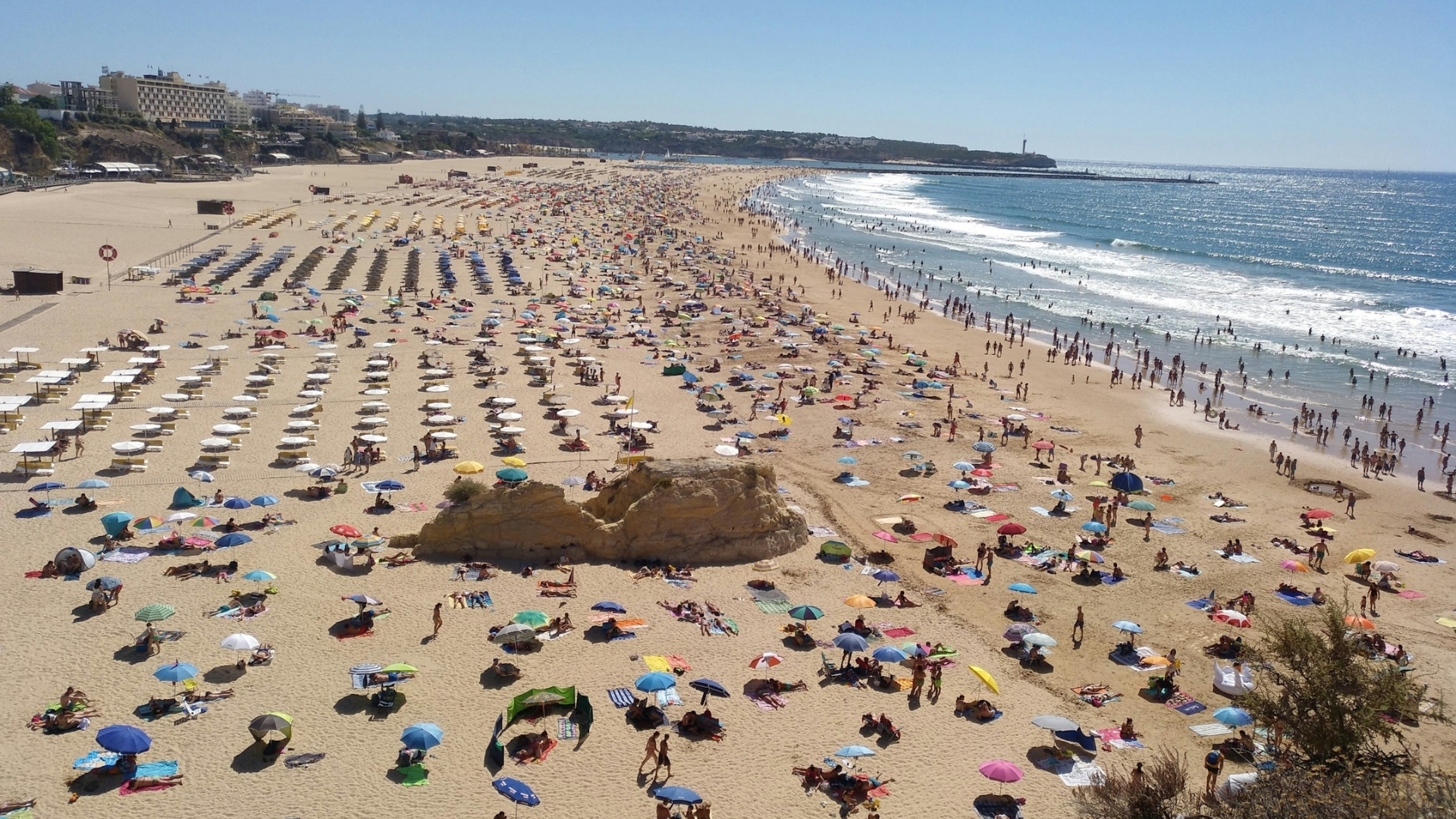
Tallinn is a rising star for queer nomads, both culturally and legally. In 2023, Estonia became the first Baltic state to legalize same-sex marriage (effective 2024), reflecting a major shift in public opinion—over half of Estonians now support marriage equality.
Nomads.com rates Tallinn “Great” for both LGBTQ+ and women’s safety, while crime levels remain low by European standards. Pride celebrations and rainbow flags in the medieval Old Town reflect this new chapter of inclusivity.
For nomads, Tallinn is as practical as it is progressive. It pioneered the e-Residency program and was among the first to introduce a digital nomad visa, making it easy for remote workers to settle in legally.
The city is deeply tech-driven—home to global startups like Skype and Bolt—and English is widely spoken. With monthly living costs around $3,075 and internet speeds of 32 Mbps, Tallinn offers both affordability and strong infrastructure.
Safe streets, new legal protections, and a thriving tech scene position Tallinn as the Baltics’ go-to destination for LGBTQ+ nomads.
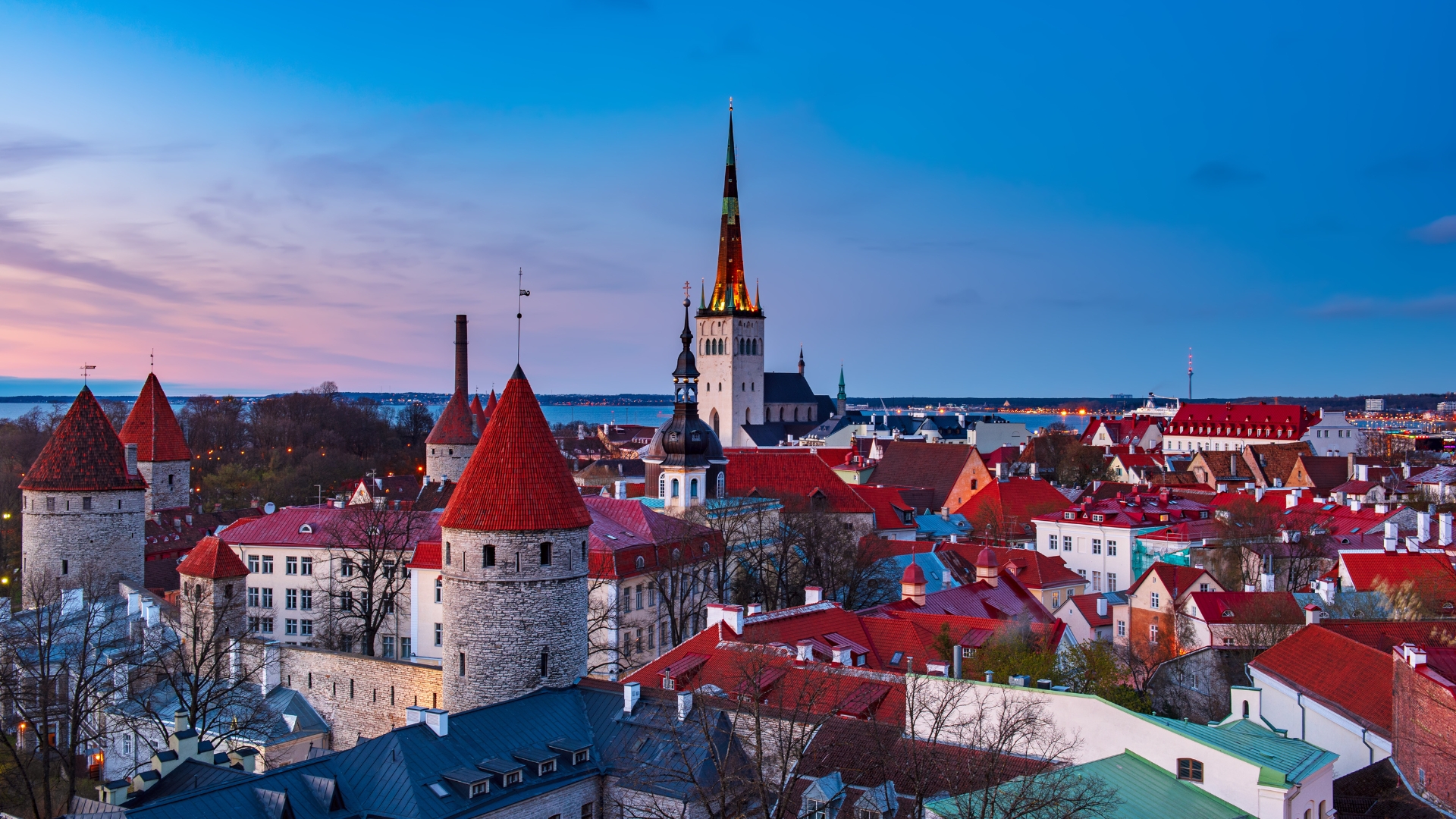
Alicante, on Spain’s Costa Blanca, mirrors Valencia’s mix of safety and Mediterranean charm. Spain’s strong LGBTQ+ protections—same-sex marriage legalized in 2005 and robust anti-discrimination laws—create a baseline of security.
Locally, Alicante scores “Great” on Nomads.com for both LGBTQ+ safety and lack of crime. Visitors consistently describe the city as walkable, relaxed, and welcoming, bolstered by its large expat and retiree community.
From a nomad’s lens, Alicante delivers a slower, sunnier pace of life compared to Madrid or Barcelona. Internet speeds average 26 Mbps, and the cost of living is more affordable than Spain’s big cities.
Spain’s new digital nomad visa also makes Alicante an accessible base. With year-round mild weather, beaches stretching along the Costa Blanca, and a lively Old Town, the city offers both inclusivity and lifestyle perks.
Alicante may not be as famous as Barcelona, but for LGBTQ+ nomads seeking safety and affordability, it’s a hidden gem.

Munich stands out as Germany’s safest destination for LGBTQ+ nomads. Germany legalized same-sex marriage in 2017, and Munich’s metropolitan culture is deeply inclusive.
Numbeo shows very low crime (rated “Great” for lack of crime), while Nomads.com also marks the city “Great” for LGBTQ+ safety and overall security.
Munich’s queer scene is lively, anchored by the Glockenbachviertel district and large-scale events like Munich Pride (Christopher Street Day).
For nomads, Munich offers reliability across the board. Internet speeds average 25 Mbps, public transport is seamless, and the rule of law is strong. Living costs are higher—about $4,885/month—but balanced by access to world-class healthcare, English-friendly services, and Germany’s freelancer visa (“Freiberufler”) for qualified remote workers.
Add in Munich’s tech ecosystem, sprawling parks like the English Garden, and an international expat network, and you get a city that pairs outstanding safety with quality of life.
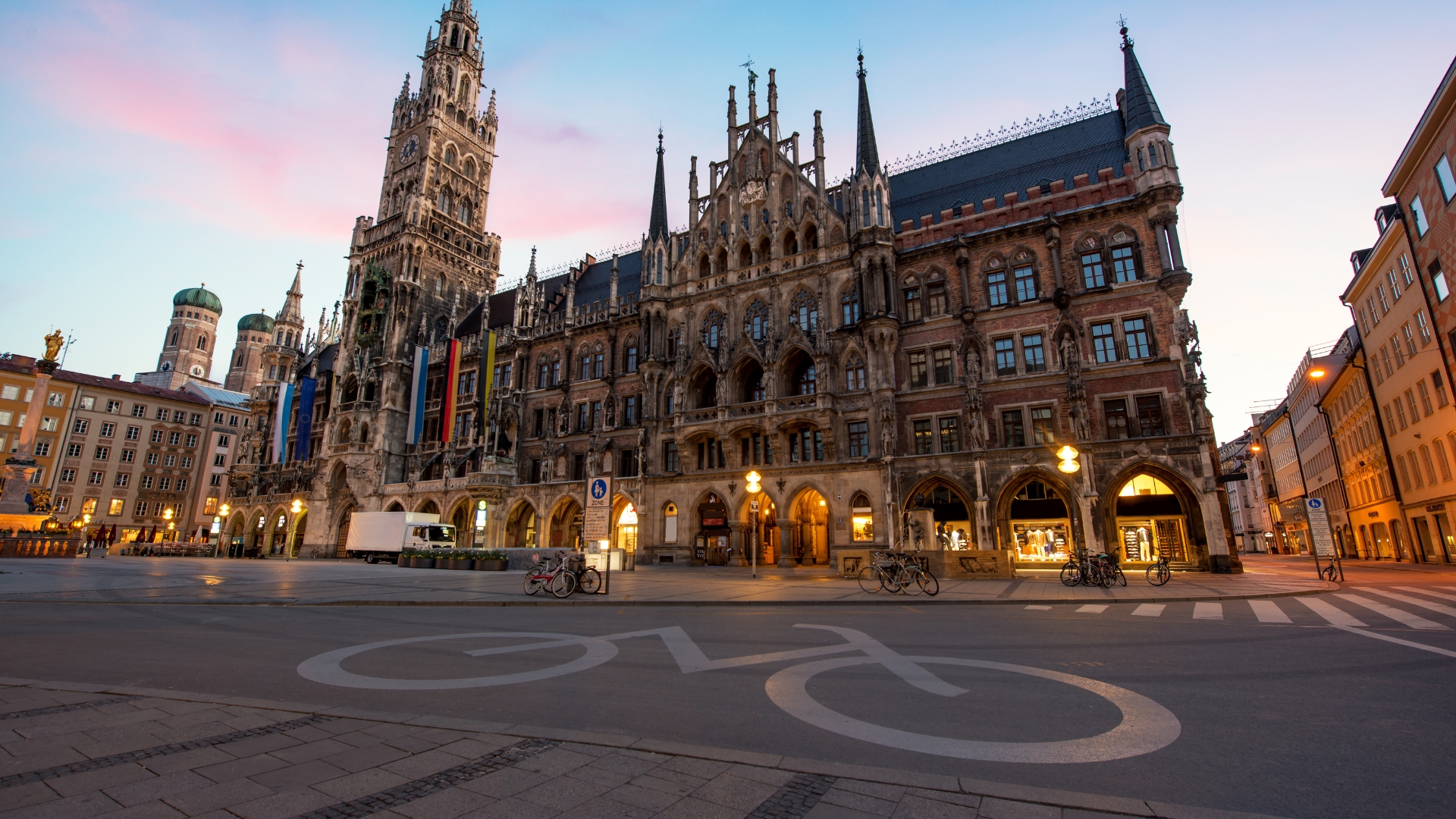
Utrecht closes out our list with the same hallmark safety and tolerance that defines Dutch cities. The Netherlands has led the way globally on LGBTQ+ rights since 2001, when it became the first country to legalize same-sex marriage.
Utrecht reflects that progressive history: Nomads.com rates it “Great” for both LGBTQ+ and women’s safety, with crime levels consistently marked as very low. Compact, bike-friendly streets add to its sense of security.
From a nomad’s perspective, Utrecht delivers modern infrastructure in a historic setting. Internet speeds average 32 Mbps, and though the cost of living is steep—around $6,000/month—residents benefit from efficient public services, English fluency, and a culture of civility.
Its medieval center, crowned by the cathedral tower, hosts cafes, coworking spots, and canalside terraces. Utrecht may be smaller than Amsterdam, but its liberal values, safe streets, and international atmosphere make it a worthy entry in the global top 10 for LGBTQ+ nomads.
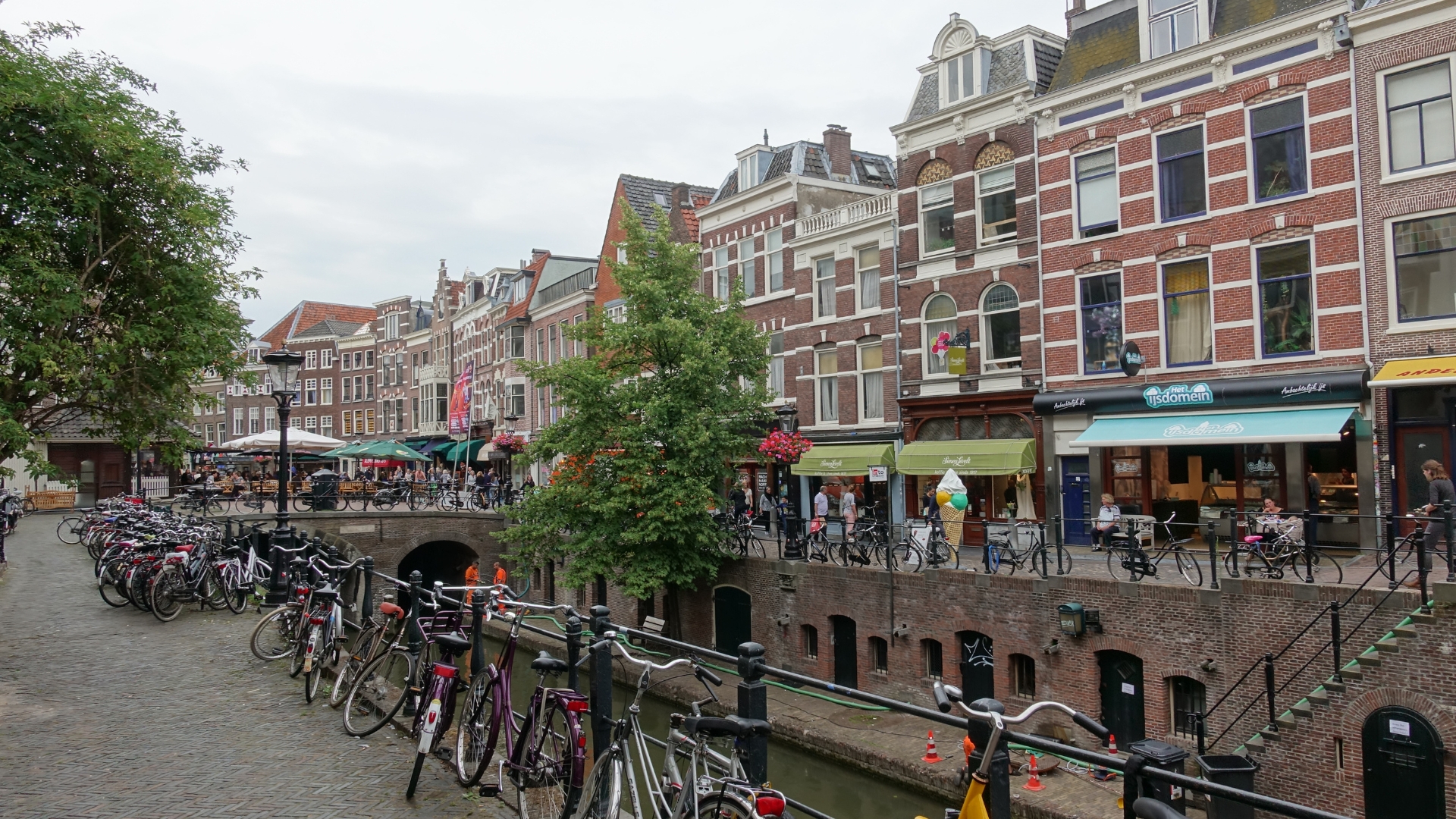
Among our global picks, The Hague, Netherlands stands out as Europe’s safest haven.
The Netherlands has been a pioneer in queer rights since 2001, when it became the first country in the world to legalize same-sex marriage.
That progressive legacy still shapes daily life in The Hague.
With its diverse expat population, international institutions, and consistently low crime rates, the city scores “Great” on Nomads.com for both LGBTQ+ safety and overall security.
What gives The Hague the edge is its mix of liberal culture and livability.
Pride events and a thriving queer community are matched with strong infrastructure—fast internet, efficient public transport, and easy EU visa access. And with Amsterdam’s iconic LGBTQ+ scene just a tram ride away, The Hague blends security with access to one of Europe’s most vibrant queer capitals.
To build this list, we combined Nomads.com data on LGBTQ+ safety, women’s safety, cost of living, and digital infrastructure with Numbeo’s crime and safety indexes.
Our ranking weighted LGBTQ+ rights first, followed by overall safety, then digital nomad infrastructure. Legal milestones (like the Netherlands’ 2001 marriage equality law or Taiwan’s 2019 breakthrough) were used to contextualize each city’s social climate.
All data are current as of 2025, with sources including Nomads.com city guides, Numbeo crime reports, and international rights reports.
Building an online business is a lonely endeavor.
Join our newsletter to get stories of successful global entrepreneurs on how they build their online business.
